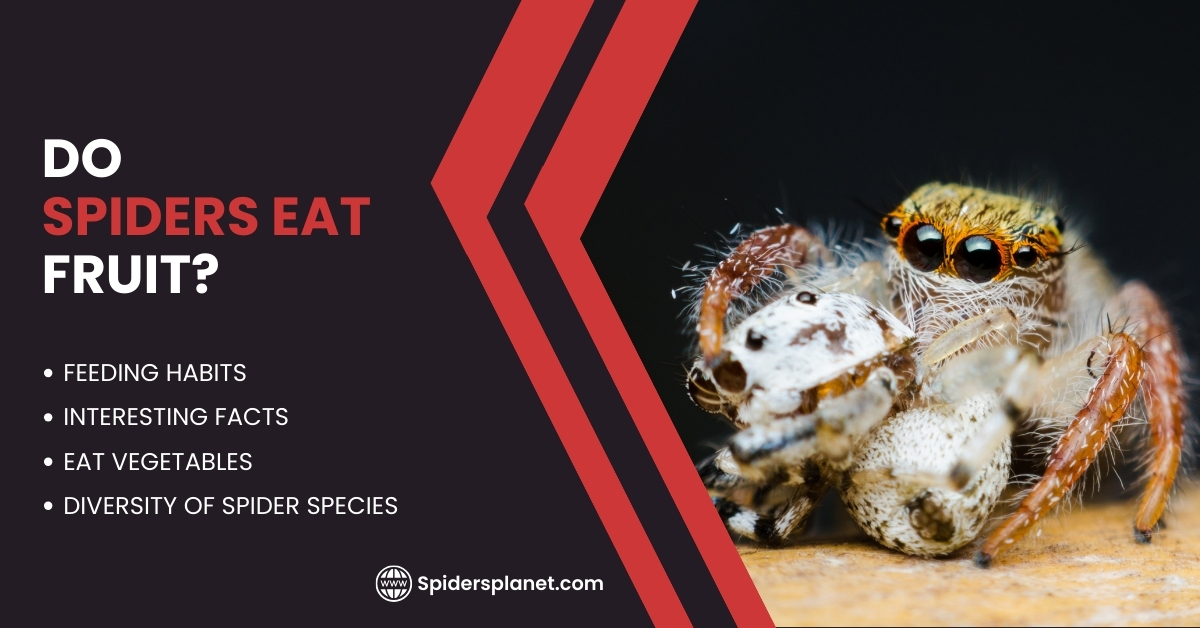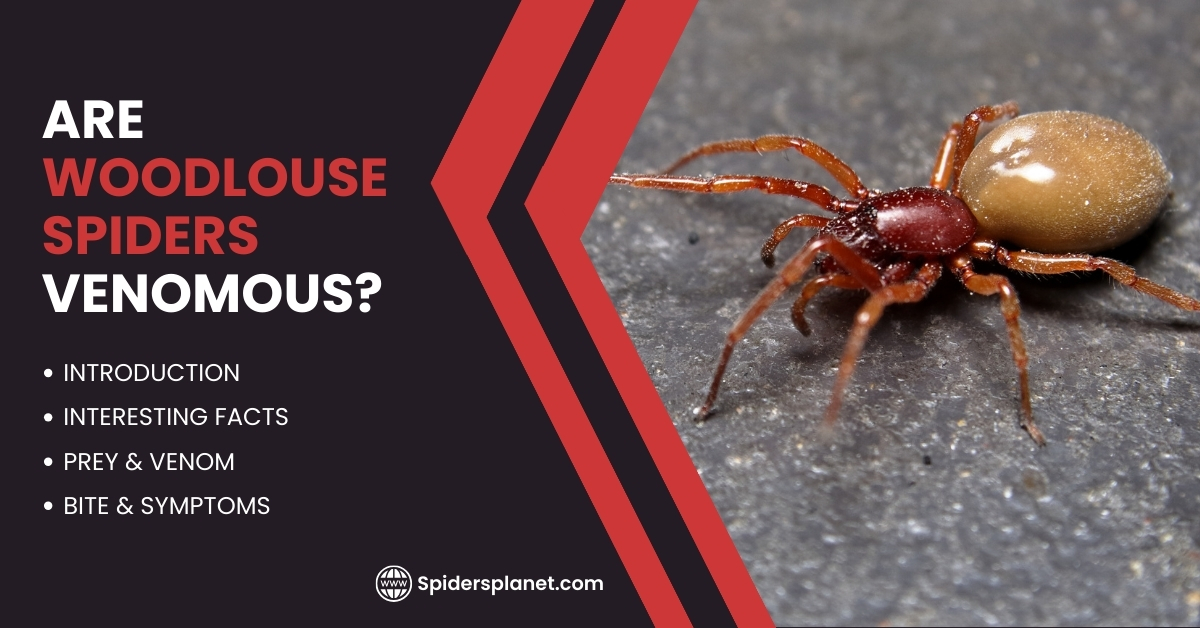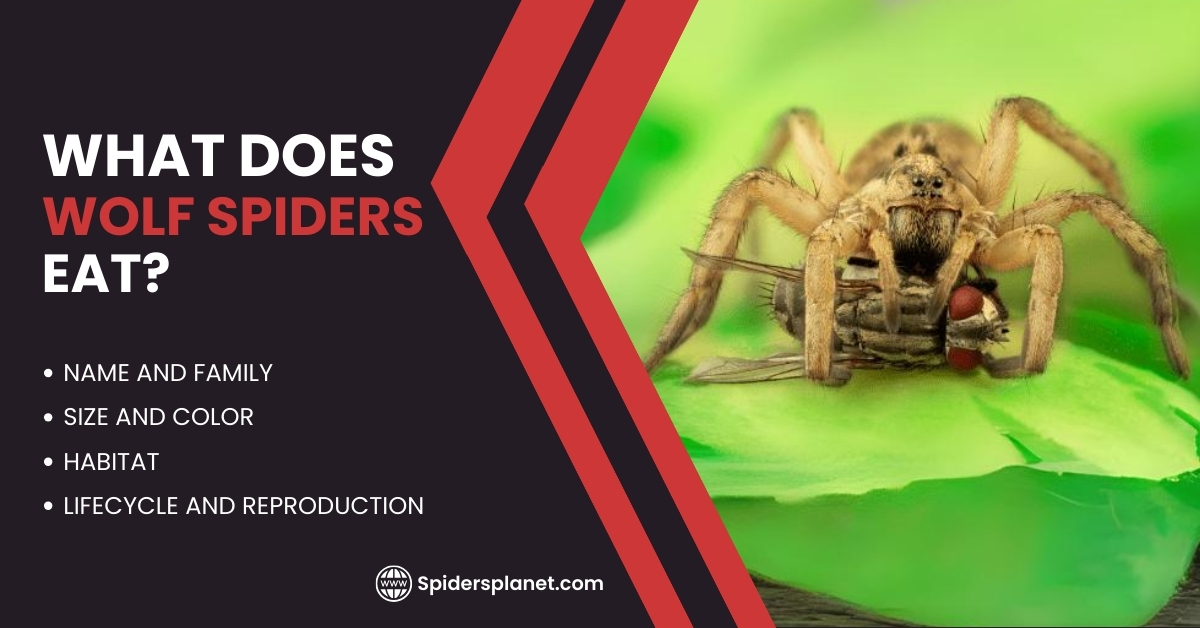Aphids are well known for their rapid reproduction rate and can quickly become a problem for gardeners and farmers due to the damage they can inflict on plants.
Large populations can quickly turn leaves yellow and stunt shoots, they can also produce large quantities of a sticky exudate known as honeydew, which often turns black with the growth of a sooty mold fungus.
If you’re a gardener, you may already be familiar with pesky aphids infesting your plants. Or you could simply be a pet owner just wondering if it’s safe to feed aphids to your spider. Whatever the reason this article will answer your question Do spiders eat aphids?
We’ll also take an in-depth look at how spider diets intersect with pest control and why it matters to keep an eye out for “helpers” like spiders when dealing with pests in your own home or garden.
Do Spiders Eat Aphids?
So do spiders eat aphids? The short answer is yes they do! Although its typically ladybirds and lacewings that eat aphids, spiders also eat them from time to time.
However, the spiders that do, usually live in close proximity to these tiny bugs, particularly those that are common in gardens and fields.
Types Of Spiders That Eat Aphids
So the spiders that eat aphids are often quite small and nest close to these aphids with some actually nesting in the plants themselves! Here are a few types of spiders that are known to eat aphids:
- Jumping Spiders
- Crab Spiders
- Mesh-Web Weavers
- Lynx Spiders
- Combfooted Spiders
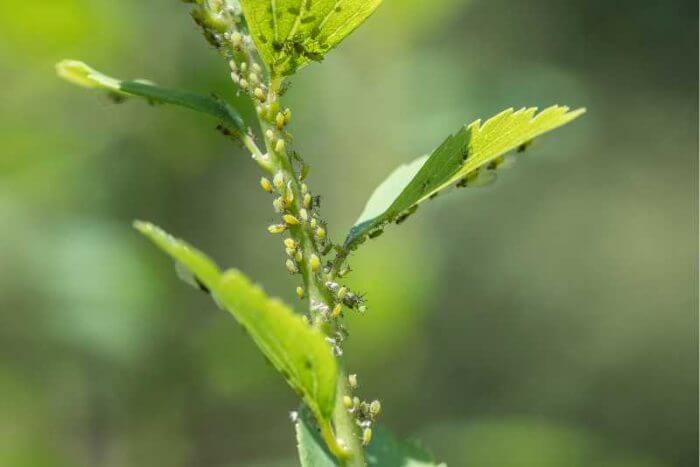
A good example of a species of spider that eats aphids is the jumping spider. Believe it or not, jumping spiders and aphids, despite being vastly different creatures, share some intriguing similarities in their habits.
Both are highly adaptable and can be found in most habitats worldwide. They also spend most of their time in plants. In fact, the jumping spider is known to build small web funnels “nests” in between the leaves of the plants.
Of course, then you have the crab spider, the mesh weavers, the lynx spider, and the combfooted spider all live close to these bugs and will feast on them.
For spiders eating aphids is mainly a survival tactic not to mention, that aphids are relatively defenceless against spiders, making them an easy target for a quick meal.
How Do Spiders Catch And Eat Aphids?
When it comes to catching and eating aphids. Spiders will use the same method on any of their prey. Some spiders hunt differently from others, however, the result is the same. To give you an idea here’s a general overview of how they do it:
- Catching the Aphids: Spiders use different methods to catch aphids. Some spiders, like the crab and jumping spiders, are ambush predators. They patiently wait and pounce on their prey when it comes close. Others, like the orb weaver and meshweb weavers, spin intricate webs to trap aphids that accidentally fly or crawl into them.
- Immobilizing the Prey: Once the spider has caught an aphid, it uses its fangs to deliver venom. The venom serves two purposes: it paralyzes the aphid and begins the process of breaking down the aphid’s body tissues.
- Feeding on the Aphids: After immobilizing the aphid, the spider will regurgitate digestive enzymes onto or into the aphid’s body. These enzymes break down the tissues of the aphid into a liquid form. The spider then sucks up this ‘soup’, leaving behind the empty exoskeleton of the aphid.
So, while aphids are a part of many spiders’ diets, it’s important to note that spiders often prefer other insects. Aphids are typically consumed when other food sources are scarce.
How Often Do Spiders Eat Aphids?
The frequency with which spiders eat aphids can vary greatly depending on several factors, such as the type of spider, the availability of other food sources, and the presence of aphids in the environment.
While they are known to eat aphids, you need to remember they are not their primary food source. Spiders often prefer slightly large insects that provide more sustenance. Aphids are usually consumed when their more desirable prey is scarce.
In environments where aphids are abundant, spiders may consume them more regularly. For instance, if your plants are experiencing an aphid infestation, spiders living there would likely eat aphids more frequently due to their high availability.
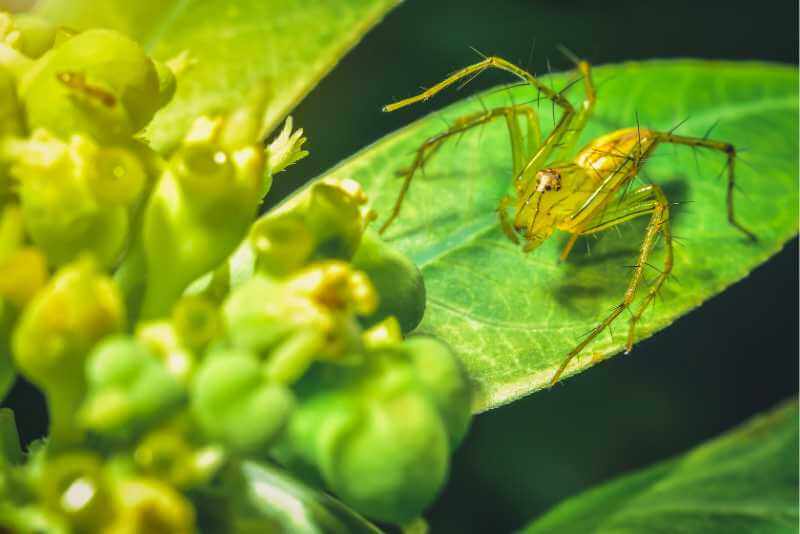
Are Aphids Healthy For Spiders?
While there is no definitive source detailing the health benefits of aphids for spiders, it’s important to understand that spiders are opportunistic predators and will eat a wide variety of insects, including aphids.
Just like any other prey, aphids do provide some nutritional value to spiders. However, because of their small size, aphids are not as nutritionally satisfying as larger insects.
Moreover, the nutritional value of aphids can vary depending on what the aphids have been feeding on. For instance, aphids that have been feeding on nutrient-rich plants may provide more nutritional benefits to spiders than those feeding on less nutritious plants.
How Many Aphids Do They Typically Eat?
The number of aphids a spider eats can vary depending on various factors such as the spider’s size, species, and the availability of aphids.
Small spiders living in an area with a high concentration of aphids might eat several in a day, while larger spiders may need more substantial prey to satisfy their dietary needs.
For example, some small jumping or crab spiders living in an aphid-rich environment might consume several aphids per day, especially if other prey is scarce.
However, it’s important to remember that spiders don’t need to eat daily and can go for several days without eating if they’ve had a large meal.
Just keep in mind that these are rough estimates. The number of aphids a spider eats can fluctuate widely depending on individual circumstances and environmental conditions.
Should You Feed Aphids To Your Pet Spider?
If you’re considering feeding aphids to your pet spider, it’s generally not recommended. Aphids are quite small and may not provide enough sustenance, especially for larger pet spiders. While they do offer some nutritional value, they might not provide a balanced diet for your spider.
If you have access to plenty of their usual prey like grasshoppers, crickets, etc., you should stick to these as they offer way more nutrition.
Conclusion
So now you know that spiders do eat aphids! But while spiders in the wild may consume aphids it’s generally not advisable to feed aphids to your pet spider. They could also potentially carry harmful substances if they are collected from your back garden.
Especially if the plants have recently been sprayed with chemicals that can actually be passed on to your spider if they consume the aphid.

